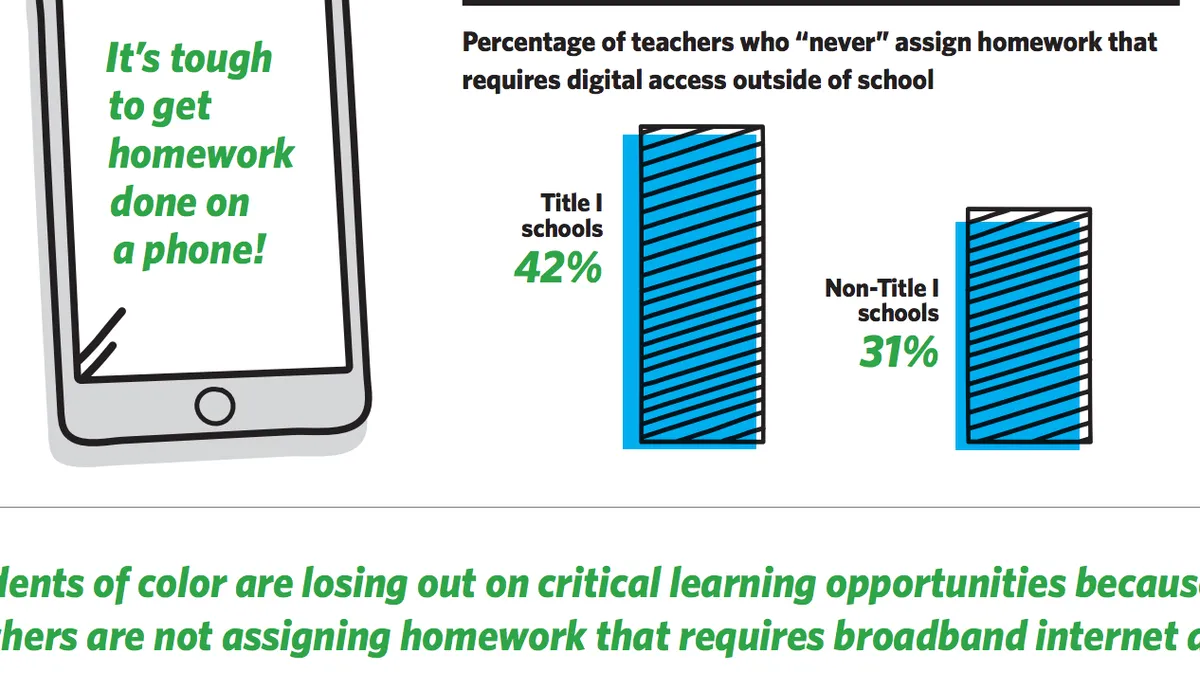Dive Brief:
- As grade levels increase, teachers are more likely to assign homework that requires digital devices or access to the internet, but teachers in schools predominantly serving students of color say they refrain from assigning online homework, according to a new Common Sense survey.
- Partly because of the lack of access, lower-income students and students of color do not have the same learning opportunities when compared to students who have access to digital tools, the authors write.
- While the survey found a majority of students have access to mobile devices, it points out that deeper academic work such as "research, reporting, creating and connecting" is only possible on a computer connected to the internet. Students who lack this access at home are most likely to be African American, Latinx and Native American.
Dive Insight:
Common Sense surveyed 1,208 K-12 teachers, with four out of 10 reporting they teach students who do not have access to an internet-connected computer at home adequate enough to complete schoolwork. Teachers in Title I schools or in schools serving more than three-quarters of students of color were more likely to say more than 60% of their students do not have this access.
This study confirms the homework gap persists, in line with findings from other recent reports. According to Associated Press reporting based on census data, approximately 3 million students (or 18%) across the country don't have internet at home and 17% don't have computers. Students who have internet access are more likely to score better on math, reading and science tests.
To bridge the gap, districts are finding innovative ways to provide internet access for students. School bus hotspots and mobile hotspots are among some initiatives that are bringing the internet to more students. Many national nonprofits, such as EveryoneOn, are also working with schools to connect students for no or low cost.
A recent report by the Government Accountability Office (GAO) suggested the Federal Communications Commission is exploring the possibility of expanding the E-rate into homes without internet following a recommendation from the GAO.
Numbers show that there are benefits to having a computer connected to the internet for students and their families. A study by the Miami-Dade School District following the implementation of a $3.5-million grant initiative that provided laptops and internet connection for use at school and home showed 90% of parents found internet access made it easier for parents to stay informed about their children's academic progress.
Another report found high-schoolers who had a laptop or Chromebook took more notes when compared to their peers who didn't have those devices. Students with computers also checked their grades more often and received reminders about tests and assignment deadlines.
"As long as the homework gap persists, teachers cannot prepare the students of today for the jobs of tomorrow," said CEO of Common Sense, James Steyer, in a press release. The new report urges lawmakers to work toward closing the digital divide on both the state and federal level.














